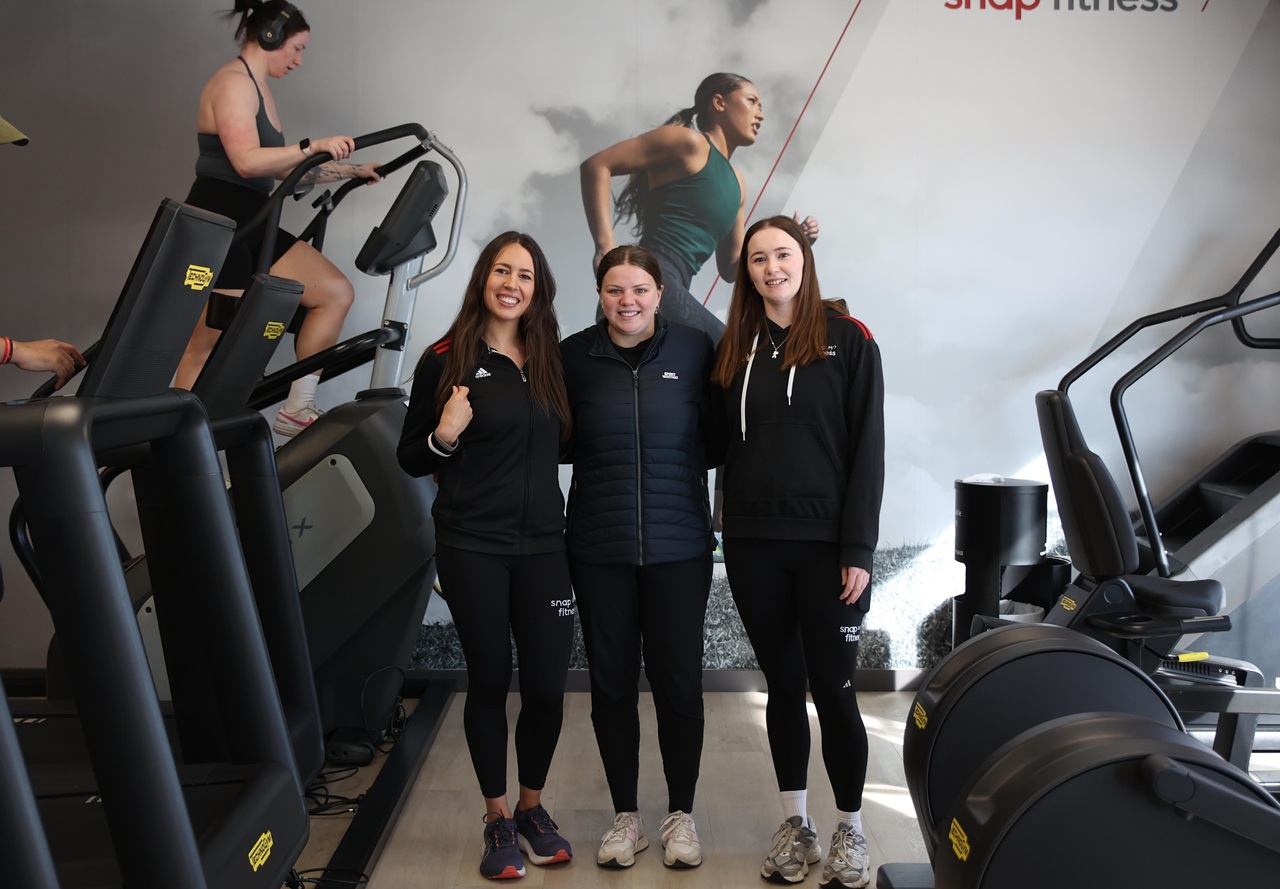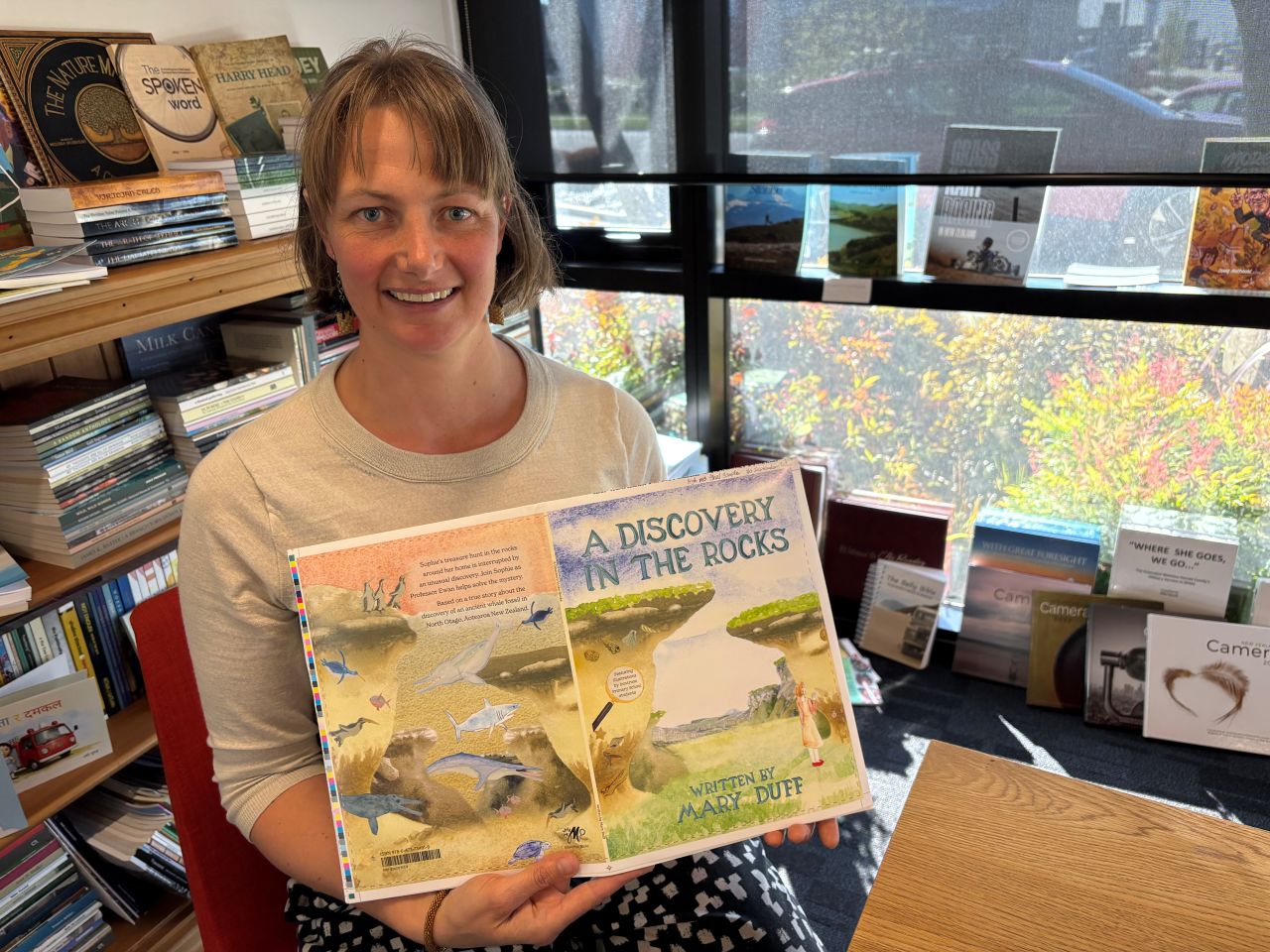Do we still need to write by hand? Use a compass? Read a map?
RNZ
07 October 2025, 8:48 PM
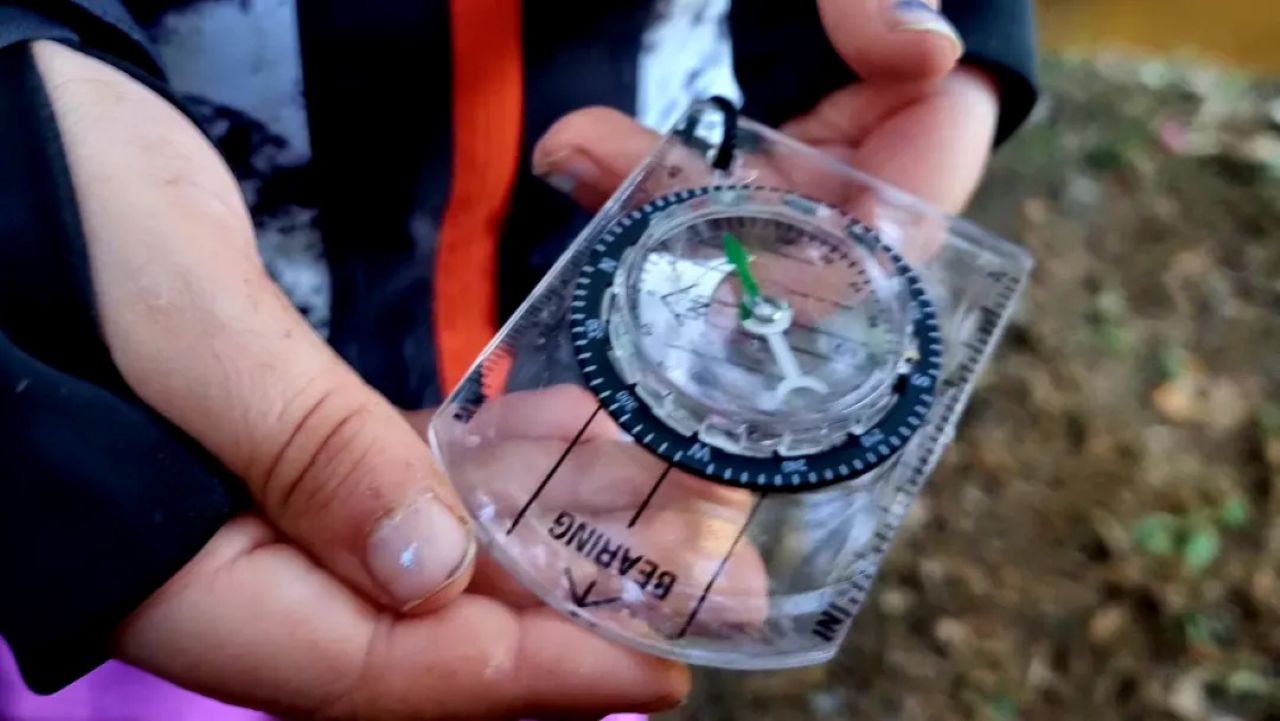 Nature's Den is teaching Auckland kids survival and navigation skills. Photo: Supplied/Nature's Den via RNZ
Nature's Den is teaching Auckland kids survival and navigation skills. Photo: Supplied/Nature's Den via RNZWith AI and tech classroom companions, how important is it that we still have these skills?
By RNZ Digital Journalist Isra'a Emhail
Remember a time when doctors wrote prescriptions by hand? When journalists scribbled notes in shorthand, travellers relied on map books to get around and accountants did sums on calculators?
Now, with all the tools available on our cellphone, how crucial are these skills?
The introduction of tech in our classrooms and careers was viewed with trepidation at first, recalls Karen Tui Boyes, who has spent three decades teaching. But she says it's all about integration.
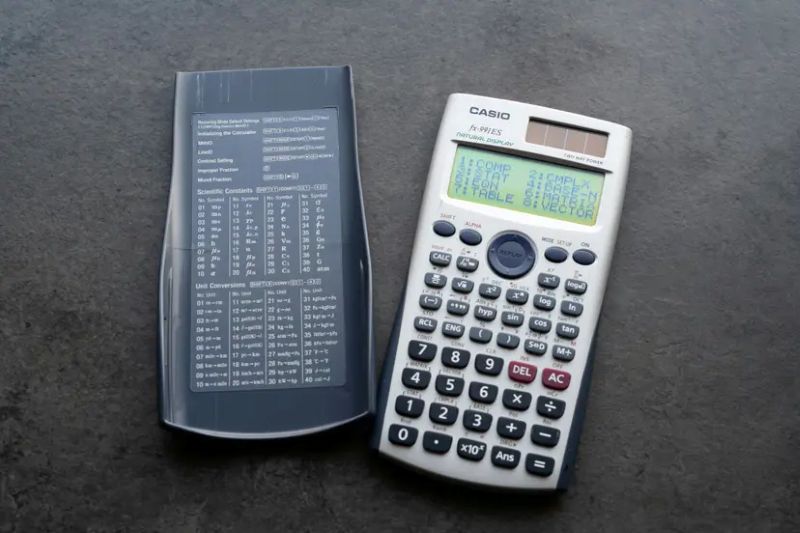
Statisticians have mostly moved on from using offline calculators to compute their massive datasets, Stats NZ says. Photo: RNZ File image/Unsplash/Gavin Allanwood
Do we still need a calculator?
Before reaching for a calculator, mastering basic numeracy is essential, says Boyes, who launched Spectrum Education — an online school focused on personalised, project-based learning, four years ago.
“If we put three plus seven into the calculator and got 21, because we accidentally wrote three times, they have to be able to know that that doesn't look right.”
Warwick Jordan, from Hard To Find Books in Auckland, remembers when calculators were seen as so revolutionary teachers banned them at Whakatāne District High School.
Boyes says she sees the same fear of cheating resurface — now it's around AI.
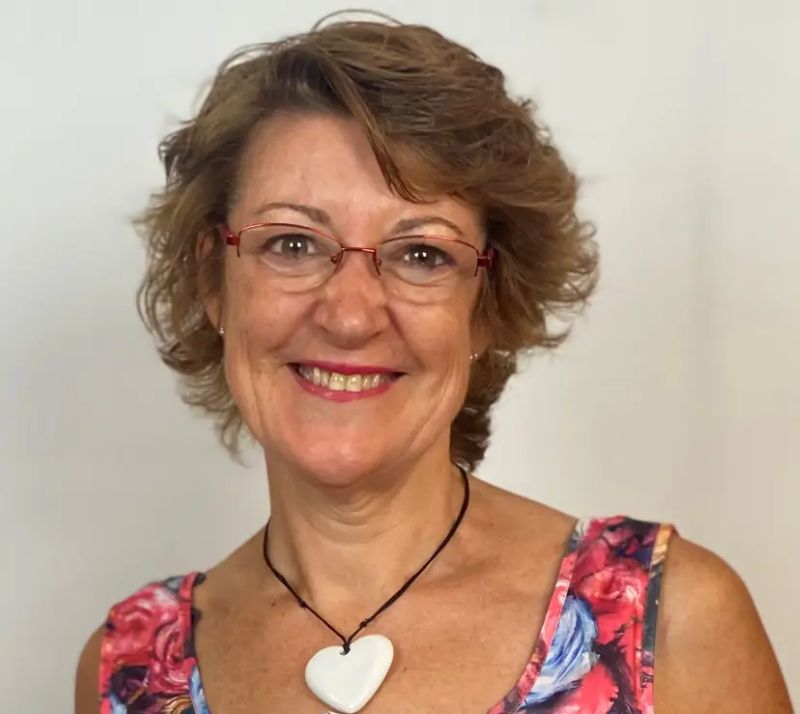
Spectrum Education founder Karen Tui Boyes. Photo: Supplied/Spectrum Education via RNZ
But once students understand how formulas work, using calculators or AI for more complex problems isn’t an issue, she says.
“Our kids, if they've got real life use for it, and they understand it, then I don't know that it matters whether they've done it online or whether they've done it in the head, as long as they have an understanding of what that means.”
Stats NZ say they don't usually use offline calculators to process their massive datasets - instead managing this through computer code and apps (like Excel).
The efficiency of the tools means they can more easily produce estimates, for example population or economic growth, in various outputs like graphs and tables.
Is it worth knowing how to use a compass and read a map?
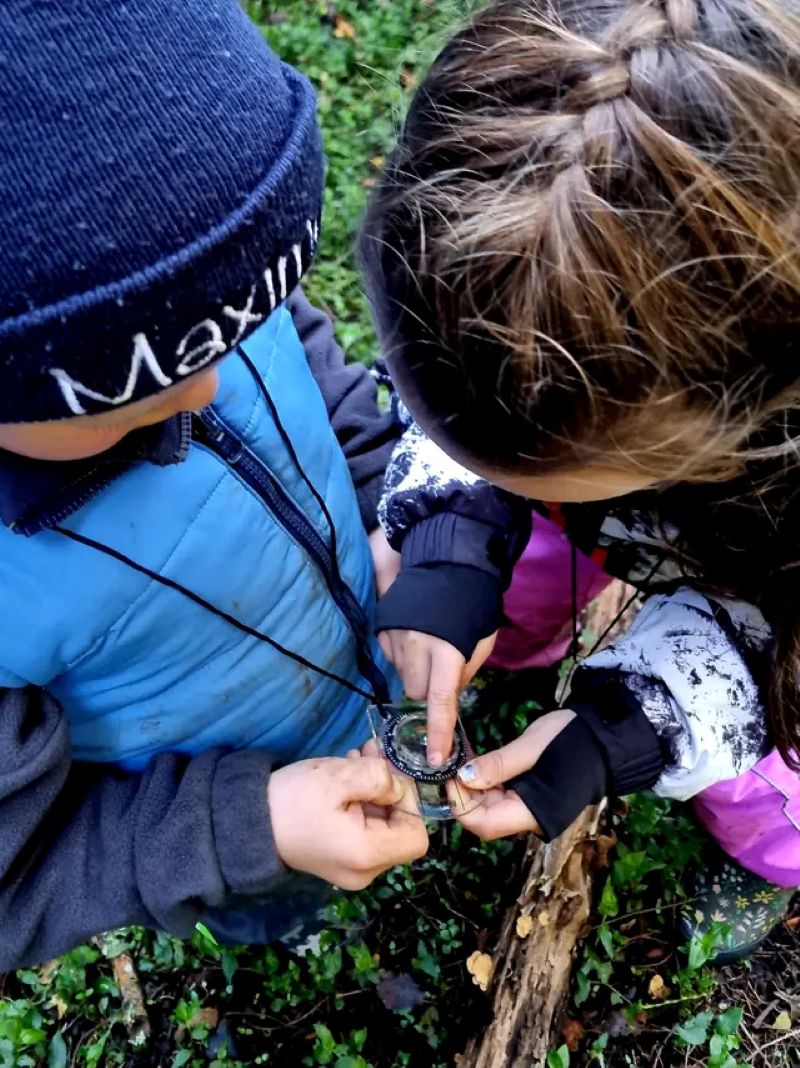
Nature's Den co-founder Alex Sherie says kids at their programme also learn about using the sun as a navigation guide. Photo: Supplied/Nature's Den via RNZ
Alex Sherie, 29, co-founded the forest school Nature’s Den in Auckland. The one-day programme, running in five locations, focuses this term on survival and navigation using maps and compasses.
Sherie grew up using old-school map books and believes knowing how to read one and use a compass is vital — especially in the wild.
“I think it's super important having something in your hand that is not going to die in terms of battery life or rely on a signal,” he says, adding they were surprised many whānau had compasses lying around.
“We talk a lot about the sun, how the sun rises up from the east, goes down towards the west... And they're like, ‘oh, Alex, I think I know where west is because I can see the sun moving’.”
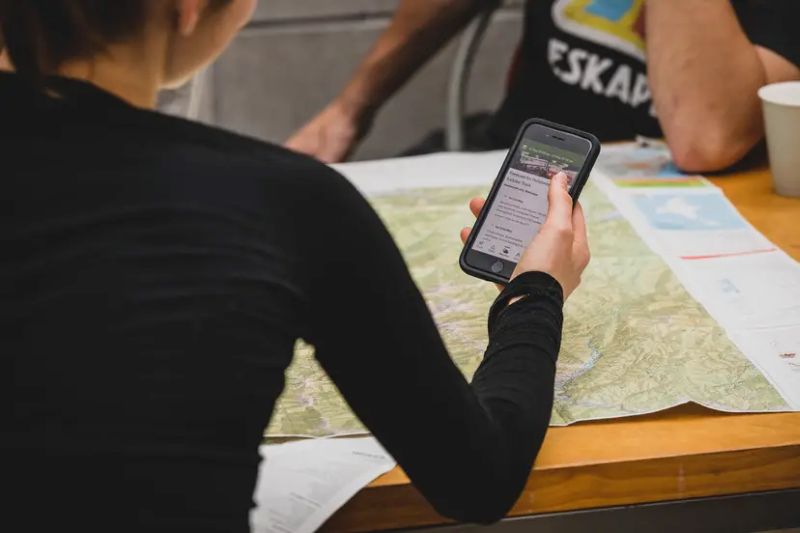
A Mountain Safety Council survey shows most are relying on their phones to get around while exploring outdoors. Photo: Mountain Safety Council/Caleb Smith via RNZ
But the reality is mapping apps have overtaken printed maps for outdoor adventurers, according to NZ Mountain Safety Council (MSC).
"We can now say with certainty that most people have shifted to using digital devices for navigation," they say, based on a recent survey.
They say people also tend to use cellphones for things like taking a photo of the map, identifying landmarks in the distance, using a digital compass and taking screenshots of track descriptions and route notes.
Still, MSC chief executive Mike Daisley says reading printed maps and navigating handheld compasses are an essential skill when you’re exploring.
Do I need to know how to write by hand?
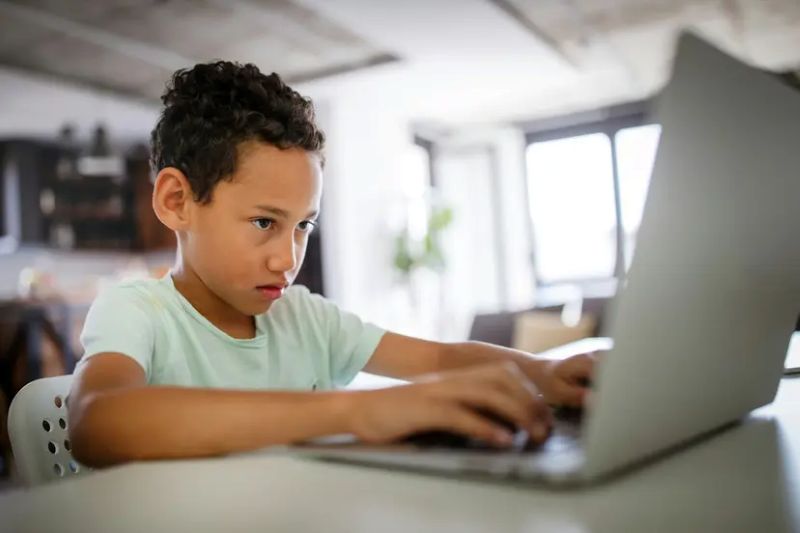
Just like writing fluently helps lessen the load on the brain to focus on other things - the same applies to touch typing. Photo: RNZ file image/Unsplash/Getty Images
Teacher Boyes says research shows writing by hand improves memory, creativity and critical thinking as well as fine motor skills like hand-to-eye co-ordination.
Fluent handwriting lowers cognitive load, freeing up brainpower for actual thinking, she says.
“The new New Zealand curriculum has a new resource… that suggests that we should be doing explicit 10 minutes a day of handwriting and that it is taught in schools.”
But it doesn’t have to be cursive. One of the tests students take between Years 2 and 10 looks at how fast and legible they can copy text, she says.
Touch typing is just as important, especially in modern professions — so her students begin learning around age 10 or 11, once handwriting is solid. It has the same automaticity effect as handwriting fluently, Boyes says.
GPs are also implementing more tech into tasks that were traditionally done by hand like writing consultation notes, says Royal NZ College of General Practitioners (RNZCGP) medical director Prabani Wood.
An RNZCGP study shows 41 percent of GPs and 16 percent of rural hospital doctors had used AI already or intended to use it, with the most popular being notetaking/scribing tools.
“While there are benefits to these tools such as freeing up time to focus on other tasks and seeing more patients, there are factors that need to be taken into consideration such as data and patient privacy, accuracy and how they integrate with the systems we already have in place in our practices."
Do we need dictionaries or encyclopedias?
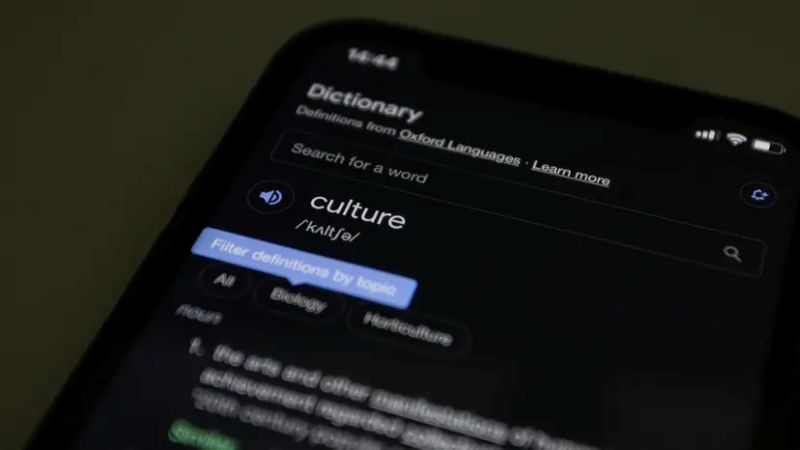
Boyes says dictionaries can teach systems like alphabetical order for kids — but that’s also learnable in other ways. Photo: RNZ File image/Unsplash/Shutter Speed
Nature’s Den is mostly tech-free, but students use an app to identify local plants - instead of flipping through encyclopedias or plant books.
“It's a big learning tool for us teachers as well,” Sherie says. “We'll take some good guesses of what we think [the species] is, and then we'll go back and check on the app to see if we're right.”
Boyes says there’s nothing wrong with using technology to enhance learning — if kids have digital literacy and fact-checking skills.
“If you go and find an old encyclopedia, it's going to tell you Pluto's a planet... I think we just need to teach our kids to fact check to be able to go, ‘we know this is true, can we find three sources of this information to make sure that we are getting it right?’”
Dictionaries can teach systems like alphabetical order — but that’s also learnable in other ways, like searching in a library, she says.
Kids still love discovering new words, but they're far more likely to search them online, she says.
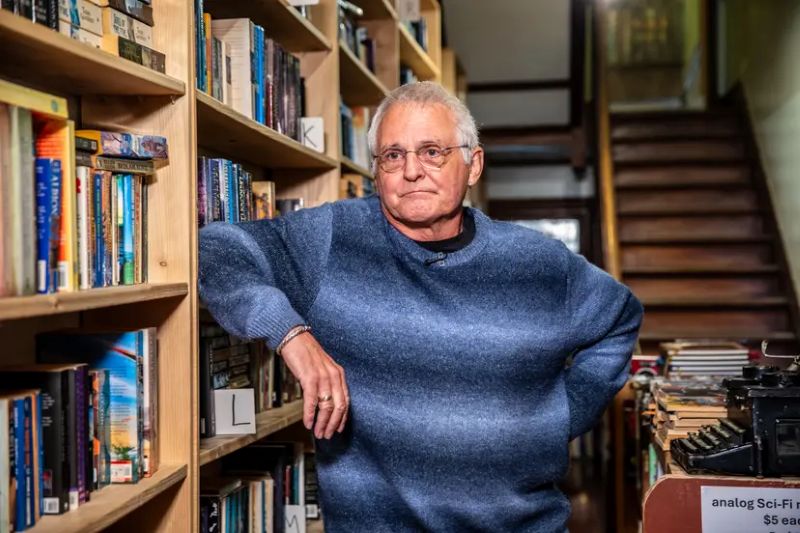
Hard To Find Books store owner Warwick Jordan says dictionary sales are "dead in the water". Photo: RNZ/Nick Monro
Jordan argues traditional books hold a fixed, unchangeable truth that online sources can’t.
“A book's knowledge is fixed. You can't modify it to suit the political climate. You can't change it.”
While dictionary sales are “dead in the water”, print books will always have value because they stimulate our brains in a different way to devices, he says. - RNZ

NEWS
